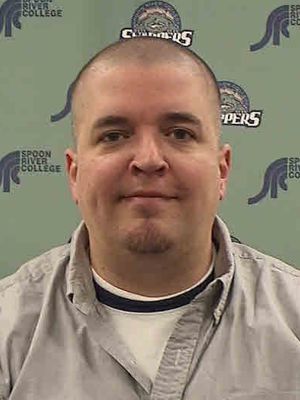Andrew Kirk
Faculty Profile
Communication Faculty
Division Chair for English, Communication, and Fine Arts
Education/Degrees:
PhD. – Speech Communication, Southern Illinois University, 2009
M.A. – Communication, Marquette University, 2005
B.S. – Advertising, Bradley University, 1999
Classes Taught:
- COM 103 – Speech Communication
- COM 104 – Introduction to Human Communication
- COM 110 – Interpersonal Communication
- COM 210 – Small Group Communication
- COM 260 – Argumentation
Campus and Community Involvement:
I am the coach for the Speech and Debate Team. I also serve as the Chair of the Diversity Committee and am an active member of the Student and Academic Affairs Committee, College Senate, and the SRC Faculty Association.
About Me:
I grew up in the Peoria area and graduated from Limestone Community High School many, many, many years ago. While I was a great high school student, my relationship with education was occasionally rocky during my undergrad, but when I began serving as an assistant coach for a friend’s speech team, my path finally revealed itself and there was no looking back.
Then came the Great Recession…eight months or so before I finished with my doctorate. The vast majority of schools who were on the hunt for folks like me canceled their job searches, but I was able to stay on at SIUC as a part-time instructor for a few years.. Then in 2012, my partner and I decided to move back to the Peoria area where I was able to teach part time at Illinois Central College, Methodist College of Nursing, Bradley University, and at the prison here in Canton for inmates pursuing their associates degrees through Lake Land College. One year later, the position at SRC opened up, and the rest is history.
Now a widower, I live in Canton with two dachshunds named Wellington and Gladys. In my free time, I enjoy everything from yard work to horror movies, and if a student ever wants to talk about the latter, I would welcome it (no offense, yard work–you’re really not a great topic of conversation). I am also a big fan of reality show competitions, music from way back in the 1900s (specifically, the 1990s), hiking, and exploring my ancestry, especially after discovering that William Shakespeare is my 12th great-grandfather*.
*Okay, not THE William Shakespeare. Rather, just a man randomly named William Shakespeare. But still…
Why Spoon River College?
The size of SRC could not be more ideal, with smaller class sizes allowing for the establishment of stronger bonds between students and instructors–something that is less common at larger colleges and universities. This carries over to the staff as well for our smaller size makes our colleagues feel more like family. I plan to retire from SRC one day, and it is rewarding to know that our collective investment in our students will ultimately make the community that many of us call home even stronger.
My Educational Philosophy:
I believe an effective instructor should be willing and able to develop meaningful relationships within the classroom. It is easy to talk at our students, but it is entirely more powerful and significant–both for students and instructors–if we create a teaching environment that is receptive to both open discussion and group camaraderie. I actively put forth the effort to establish rapport with my students. I have achieved this by incorporating my own experiences, both personal and professional, both positive and negative, both professionally mundane and wildly immature, into classroom discussions. This reminds students that while I may be the “authority figure” in the classroom, I am also human. By demonstrating my own humanity and, indeed, my own fallibility, I have found that students become less fearful of sharing their own experiences and opinions. It facilitates openness and helps establish trust.
I also believe we should strive to promote excitement and passion for education within our classrooms. We should make education intriguing to students, and for me, the critical mind is imperative in this regard. Whenever possible–in classroom dialogue, in lectures, in one-on-one meetings with students–I strive to illuminate the complex roles of power, culture, and communication in all of our daily interactions. Doing so is important not only for ensuring that those interactions are successful, but also for helping us understand our own positions relative to others within the larger social fabric. We should be questioning the taken-for-granted things we encounter daily (e.g., newspaper headlines, television programs, music, conversations with friends, etc.) and we should be stressing the importance of that interrogation to our students. In turn, this can help foster respect for the diversity that exists all around us–indeed, an increasingly worthwhile goal as our communities become increasingly globalized and our politics become more polarized. To ignore or resist our changing society, or the communication practices that persist despite those transformations, is something we cannot afford to do, and what better place to help our students in this regard than the communications classroom.
All of that makes me sound like Captain Serious, and that may be misleading since I will still audibly chuckle when I hear someone say “duty.” Truth be told, I try to make my classrooms relaxed spaces that students associate more with joy than anxiety given the prevalence of public speaking anxiety. I believe most of my students would ultimately agree.
Advice for Students:
You’ll discover that the secret to success in almost all matters comes down to time management. Also, get to know your professors, ask for help when you need it, own your mistakes, and embrace this opportunity wholeheartedly. We all want to see you succeed, and we’re more than happy to help you in those efforts.

